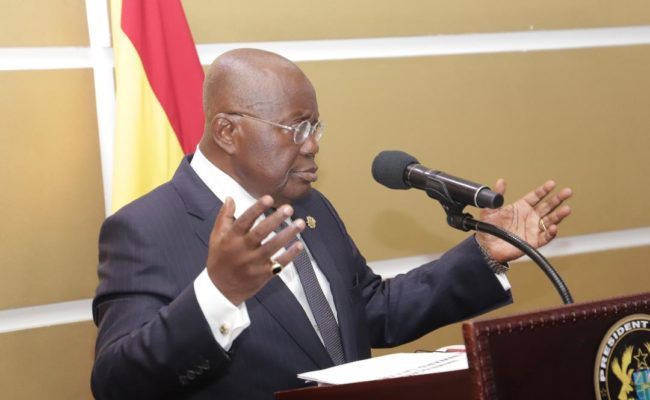Free SHS: Send your wards to fee-paying private schools if you can afford – Prez. Akufo-Addo
- Posted on
- Comment

President Akufo-Addo has disagreed with critics of his Free Senior High School (Free SHS) policy who say parents who can afford to pay fees should be allowed to.
Speaking at the 2024/2025 Annual General Conference of the Ghana Bar Association in Kumasi on Monday, September 9, President Akufo-Addo said that the policy had improved enrollment in secondary schools and helped a great deal of underprivileged students.
He opposed the idea that the policy has caused low standard in education at secondary schools and urged parents to enroll their wards in private institutions if they can afford.
“Let me express my difference with the President of the Bar on one critical issue. People who can afford to pay fees for the education of their wards should send them to fee paying private schools.
“Public schools, that is schools funded by the taxpayer should be free to all who would otherwise, be unable to pay for their education. That is why the numbers of people who have access to second cycle education has doubled since the introduction of free senior high school policy and that over 5.7 million persons have benefitted from the policy since its inception,” he said.
The President’s comment was a response to Yaw Acheampong Boafo, President of the Ghana Bar Association (GBA), who called for a revision of the Free Senior High School (SHS) policy.
During his speech at the Annual General Conference of the GBA in Kumasi on September 9, Mr. Boafo said the revision of the policy is needed to ensure that students from affluent backgrounds contribute to their education costs.
He urged President Nana Akufo-Addo and his administration to reconsider the policy.
He proposed that students from wealthy families, who have benefited from expensive basic education, should be required to pay SHS fees.
This adjustment, he believes would free up resources to better support students from less privileged backgrounds.
“The Free SHS program must be means-tested using data from the National Identification Authority so that affluent parents do not exploit the system,” Boafo said.
“Students from comfortable backgrounds who attended costly basic schools should contribute to SHS fees, allowing resources to be directed towards supporting poorer students,” he added.










 (Selorm) |
(Selorm) |  (Nana Kwesi)
(Nana Kwesi)